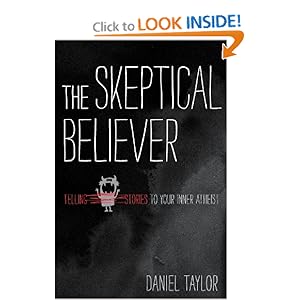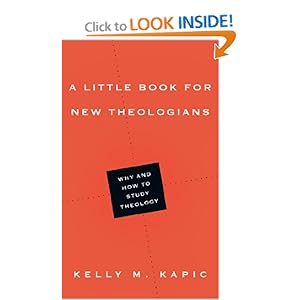
Since this blog just launched last month, I wanted to offer my ten favorite reads (or rereads in one case) of 2012:
The Pilgrim’s Progess by John Bunyan. The older I get, the more I am rereading. Since Spurgeon read it 100 times, I ought to try at least ten!
If you are intimidated by older language, try this edition as your “gateway drug” to Bunyan:
http://www.amazon.com/gp/product/080246520X/ref=pd_lpo_k2_dp_sr_3?pf_rd_p=1535523722&pf_rd_s=lpo-top-stripe-1&pf_rd_t=201&pf_rd_i=0800786092&pf_rd_m=ATVPDKIKX0DER&pf_rd_r=1SYPQTZ8EX07HTGBE5JR
Booked by Karen Swallow Prior. This is the kind of book which is sad to finish. Wonderful writing coupled with insightful truths about the human predicament. I will either be interviewing the author later this year or doing a larger review here. Stay tuned.
http://www.amazon.com/Booked-Literature-Karen-Swallow-Prior/dp/0692014543/ref=cm_cr-mr-title
On Conan Doyle by Michael Dirda. One of our youngest son’s friends is Muslim and so has never experienced Christmas. He wanted to do the whole exchanging of gifts, etc. This is the book he got me. A terrific book with fascinating background on how Conan Doyle developed his characters.
http://www.amazon.com/On-Conan-Doyle-Storytelling-Writers/dp/0691151350/ref=cm_cr-mr-title
Struggling with Scripture by Brueggemann, Placher, and Blount. A short book which helped me clarify once again why the more liberal position on Scripture is problematic.
http://www.amazon.com/Struggling-Scripture-Walter-Brueggemann/dp/0664224857/ref=cm_cr-mr-title
RetroChristianity by Svigel. I did a review of this terrific book over at Jesus Creed.
http://www.patheos.com/blogs/jesuscreed/2012/05/19/saturday-book-review-2/
http://www.amazon.com/RetroChristianity-Reclaiming-Forgotten-Michael-Svigel/dp/1433528487/ref=cm_cr-mr-title
Believing Again by Lundin. I am very interested in 19th century America and Lundin is a master of that period.
http://www.amazon.com/Believing-Again-Doubt-Faith-Secular/dp/0802830773/ref=cm_cr-mr-title
Bible in Pocket, Gun in Hand by Phares. An entertaining look at the toughness of nineteenth century ministers who preached the gospel on the wild frontier. Ministers who think they have it rough today might want to give this book a read. Non ministers will equally enjoy this lively and interesting book.
http://www.amazon.com/Bible-Pocket-Gun-Hand-Frontier/dp/0803257252/ref=cm_cr-mr-title
Green Leaves for Later Years by Griffin. Poignant, insightful, and well-written reflections on the process of aging. Aging, as Chuck Swindoll famously said, is not for wimps. This book is a good arsenal in the battle so one will be wise and joyful.”
http://www.amazon.com/Green-Leaves-Later-Years-Spiritual/dp/0830835652/ref=cm_cr-mr-title
Our Triune God by Ryken and LeFebvre. The authors provide a concise, yet responsible overview. For those wanting a good primer on the trinity, this is a good place to start.
http://www.amazon.com/Our-Triune-Three-One-ebook/dp/B004V9IFRG/ref=cm_cr-mr-title
Love Works by Manby. It sounds like a rather goofy and naive book, but it is actually quite good. Unlike the vast majority of business books, this author and successful business leader shares his own failures.
One quibble: He should have said much more about humility. And he seems to hold the popular notion that humility is elusive.
Overall, a wonderful book worth reading!
http://www.amazon.com/Love-Works-Timeless-Principles-Effective/dp/0310335671/ref=cm_cr-mr-title





